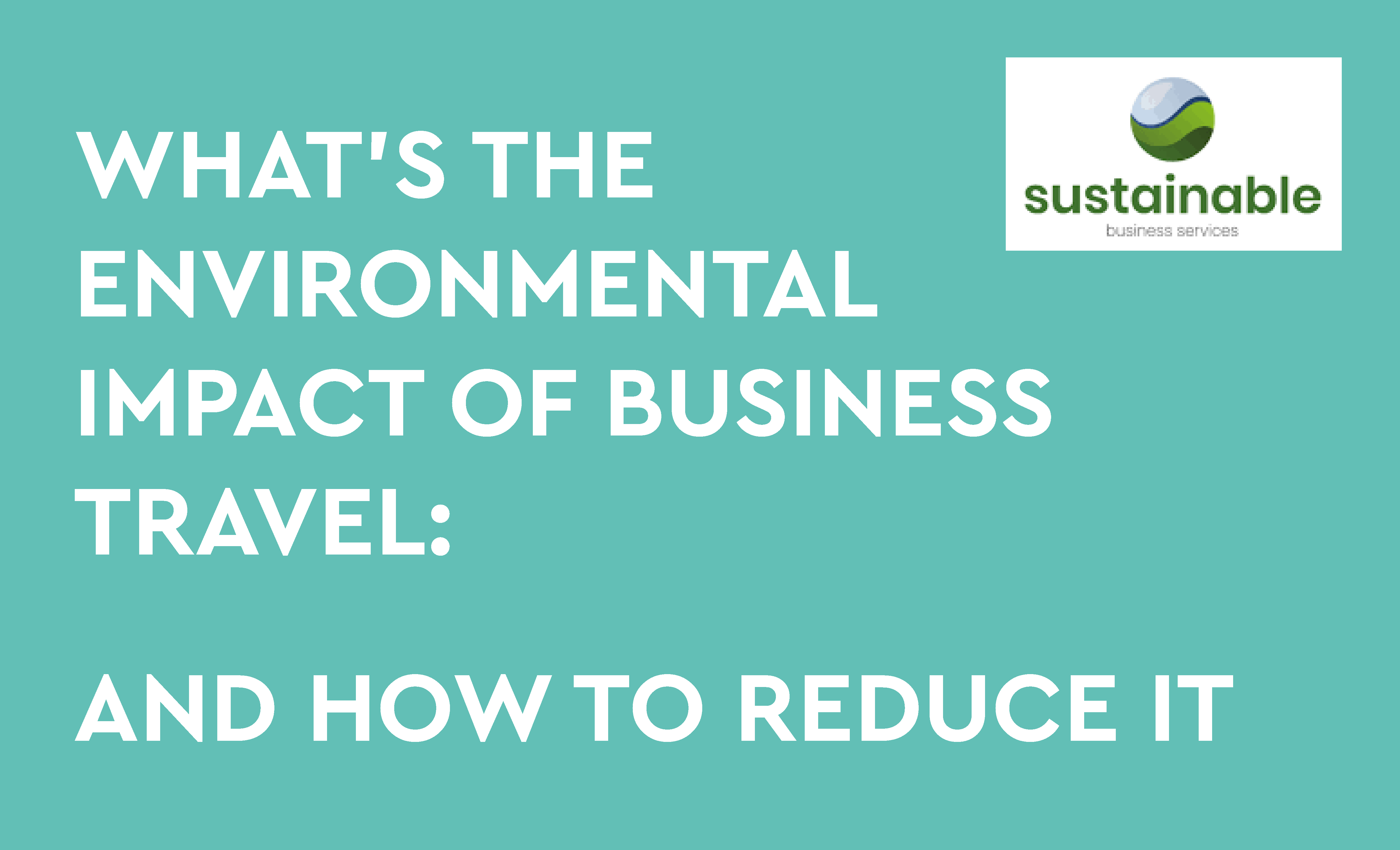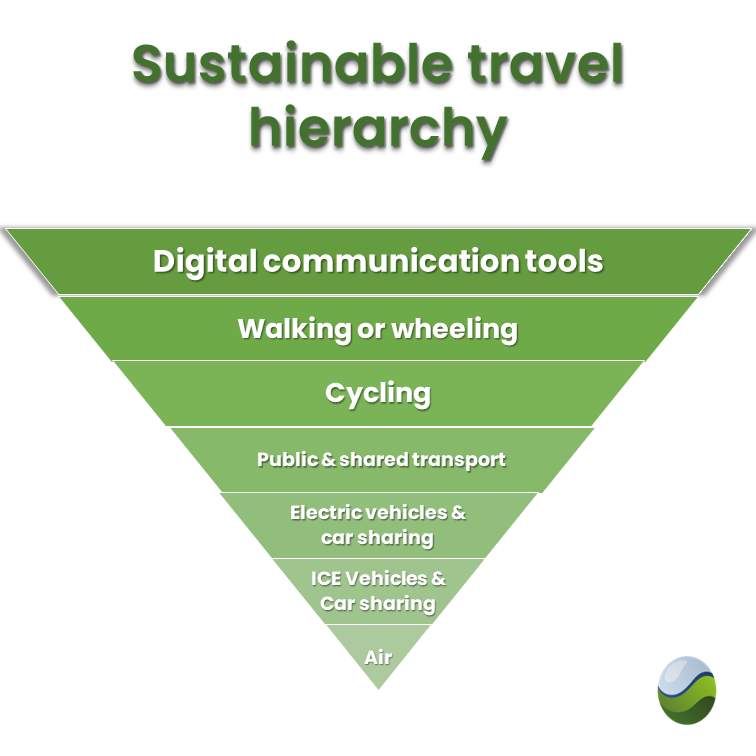Guest blog by Sustainable Business Services
Travel is one of the biggest contributors to climate change. In fact, it has been estimated that if every business traveller were able to reduce their carbon footprint by just one-quarter, this would result in a 12 per cent reduction in global emissions. It is also estimated that up to 70% of and SME’s carbon emissions could be attributed to business travel.
However, there are many ways you can make your business travel more environmentally friendly and reduce its impact on climate change while still getting from A to B!
Business travel and the environment
Business travel is a significant contributor to CO2 emissions. The World Travel and Tourism Council (WTTC) estimates that business travel accounted for 3-4% of all carbon emissions in 2016, which is equivalent to approximately 11 million tonnes of CO2.
This makes it even more important for companies to consider their corporate travel policies with a business and environmental lens. In fact, many companies are doing just that with increasing numbers opting for more eco-friendly travel options such as: utilising digital technology in place of travel; if flying is required booking direct flights with low carbon footprints; choosing hotels with good sustainability practices; encouraging employees to share journeys; or even subsidising public transport costs so they can work from home where possible.
The environmental impact of business travel can be divided into three main areas:
- Transport – The majority of emissions produced by business travel are from transport. Transport produced 27% of the UK’s total emissions in 2019. Of this, that majority (91%) came from road transport vehicles.
- How do you travel to appointments? Do you offer EV Charging at your premises?
- Using the sustainable travel hierarchy when considering if or how to travel can reduce your impact
Reducing the environmental impact of your business travel is vital to reducing emissions across your organisation and helping to tackle climate change
As a business owner, you have a responsibility to protect your company from legal and financial risks. You also have a responsibility to reduce the environmental impact of your business travel.
To do this, ask yourself the following questions:
- Do I need to travel? Is there another way of getting the information that I need? For example, can it be sent or you meet electronically instead? Can it wait until another time when I don’t need to travel for work purposes?
- If I need to travel, what mode of transport has the least environmental impact? By car or aircrafts produce more carbon emissions than trains and buses. So if possible choose rail or bus rather than flying when meeting with clients or attending sales meetings. Also consider using low emission vehicles when travelling in your own company car.
- Can I car share?
- Plan your route in advance avoiding any surprises and detours.
- Drive efficiently, ensure you are not carrying excess weight, your tyres are pumped up and you drive sensibly and efficiently, driving 10 miles an hour over the speed limit can decrease fuel efficiency by 15%
- Do you have a robust business travel policy that considers the environment and that all staff have access to and understand?
The biggest thing to remember is that business travel can have a significant impact on the environment. It’s vital that businesses take steps to reduce their emissions, particularly in light of climate change. By making small changes like reducing your carbon footprint and increasing sustainability within your business operations, you can make a huge difference to your organisation – and help other organisations do the same!








